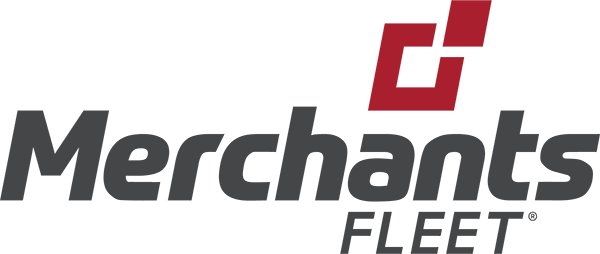How to Choose a GPS Fleet Tracking System [Comparing GPS to Connected Vehicle Systems in 2023]
Operating a fleet comes with a constant stream of data that needs to be captured, organized, and analyzed. From fuel efficiency to driver behaviors, your vehicles have the ability to tell you where you can potentially maximize efficiency and drive cost savings — as long as you have the technology in place to do so.
There are two ways fleet managers are able to maximize vehicle efficiency and drive cost savings: advanced connected vehicle telematics platforms and GPS fleet tracking devices. In fact, Automotive Fleet notes that 98% of companies that used GPS tracking software report positive benefits, while 45% of fleets achieved positive ROI in 11 months or less.
Ready to decide if a GPS system or connected vehicle solution is right for your fleet? Read on to understand the basics and benefits of fleet telematics and decide what type of tracking system to implement.
GPS Fleet Tracking Overview
Fleet GPS fleet tracking refers to a built-in navigation and data collection system that allows fleet managers to monitor all aspects of a vehicle while en route, including a vehicle’s real-time location and route visibility.
In addition to tracking the specific location and route of a vehicle, GPS fleet tracking technology allows fleet managers to gain insights into business operations, which is why it is an integral part of a telematics strategy. For fleets, GPS technology goes above and beyond just vehicle location tracking. With the right systems in place, you can use the technology to better manage and improve expenses, productivity, utilization, compliance, and safety.
Fleets are able to leverage data from two primary sources: Vehicle efficiency and driver behaviors.
Vehicle Efficiency
Do your vehicles spend too much time idling, therefore wasting an excessive amount of fuel? The day-to-day operation of your vehicles can tell you a lot about the efficiency of your fleet. GPS tracking enables you to monitor advanced fleet data including:
- Vehicle Speed
- Engine Performance
- Mileage
- Idling Time
- Emissions
- Fuel Efficiency
- Location Tracking
Many telematics systems can also implement diagnostic trouble code alerts to indicate service needs to ensure that your vehicles receive the care they need to keep running efficiently.
Driver Behavior & Safety Tracking
Are your drivers being safe on the road? With telematics, your GPS fleet tracking systems can continually capture on-the-road driver behaviors like:
- After-Hours Usage
- Braking Habits
- Speed
- Acceleration Habits
- Erratic Driving
In addition, telematics will enable you to stay compliant with Electronic Logging Device (ELD) regulations.
With this information, you can compile safety reports and provide feedback to drivers with the goal of improving their behavior on the road.
Hardware & Software
Using hardware in the vehicle and a centralized software system, GPS technology sends, receives, and stores information about each vehicle in your fleet.
Hardware — GPS Devices & Sensors
A device and sensors are installed in each of your vehicles, usually behind the dashboard or above the gas pedal. Some devices may come with the option to be hardwired or plug-and-play.
Software — A Dashboard for Metrics
The data collected from the vehicle will be transmitted to a centralized software system that presents vehicle metrics via a dashboard. GPS devices work with fleet tracking software to give fleet managers real-time and historic snapshots of vehicle metrics and driver behaviors.
Using data from your GPS fleet tracking systems, you can work toward accomplishing certain business goals, like reducing risk, reinforcing safety policies, and improving driver behavior on the road.
Benefits of a GPS Fleet Tracking System
A GPS fleet tracking system allows fleet managers to identify key areas of improvement when it comes to cost savings and increased safety.
- Streamlines information. A GPS fleet tracking system keeps everything in one place, which saves time and increases overall fleet management efficiency.
- Provides real-time and historic snapshots of location information and data. A GPS fleet tracking system allows fleet managers greater visibility into their fleet. They can see where their vehicles are on the road at any given time, as well as how long they stay at a particular location and route history.
- Allows fleet managers to help manage any compliance and safety issues. GPS systems can track vehicle speed and help fleet managers manage routine and preventative maintenance.
- Provides information about usage and productivity. This is especially helpful for fleet managers who can use that data to make informed decisions about sustainability and electric vehicles.
GPS Fleet Tracking vs. Connected Vehicle Systems
Before your fleet considers a GPS system, there is a strong possibility that your late model vehicles are already connected capable. This means they were built from the factory with an onboard modem and the required sensors needed to provide real-time information on vehicle location, speed, fuel consumption, and other operational data.
Connected Vehicle Benefits
Connected vehicle telematics tracking offers a more comprehensive view of vehicle performance and usage, as it can integrate with other systems such as maintenance and dispatching. There is also a reduced risk of driver tampering, as you cannot simply unplug the GPS tracker from an ODB-II port.
GPS Tracking Benefits
Plug-in GPS tracking systems are generally simpler to install and may be more cost-effective for smaller fleets. If you are extending cycles of your vehicles, older models might not include the telematics computers needed to be considered connected capable.
Ultimately, the choice between the two methods will depend on the specific needs and budget of the fleet operator. A Merchants Fleet consultant can review your fleet composition to see which, if any, of your vehicles are connected capable before you purchase a GPS fleet tracking system.
The best part about connected vehicles is that with the right platform, like Merchants Fleet TotalView, you can integrate connected vehicles from multiple OEMs alongside your GPS tracked vehicles to streamline your data and keep it in one convenient location.
Common Features to Look for in a GPS Fleet Tracking System
The exact type of GPS tracking system you need for your fleet will depend on many variables. Below are a few of the most common needs and features.
Mobile App and Navigation Options
Some cloud-based GPS trackers offer add-ons, such as routing and navigation capabilities. By connecting to a driver’s mobile phone, a GPS system can provide directions and instruct the driver on which stops to make and in what order through a mobile app.
A fleet manager can utilize a web interface to share turn-by-turn directions to drivers, while also alerting them of any schedule changes that may affect their routes.
Customer Support
A GPS fleet tracking system will require proper installation and setup, as well as ongoing management to analyze data. These services can be handled in house, but keep in mind the administrative responsibilities, potential for errors, and lack of customer support.
If you choose to work with a fleet management company, they will take care of installation and activation, and will work with you to identify trends and optimize your fleet performance. A fleet management company will also handle any device troubleshooting, updates, and adjustments you may need.
Alert Systems
Many GPS trackers for fleets enable you to set up alerts through text or email for real-time updates on vehicle statuses, like when a scheduled stop has been completed. You can also receive alerts if issues arise, such as unsafe driving behaviors, accidents, or route delays.
Alerts can also be set up to notify you and your customers when an expected vehicle has entered a certain radius.
Ease of Use
One of the most important aspects of any GPS fleet tracking device is the ease of use for the device and the software. While the technology should be very sophisticated, it should not be difficult to understand for the end users.
It is important to have a dashboard that does not require advanced technical skills to operate. As you are looking for a GPS tracking system for your fleet, take advantage of free product demonstrations so you can see the software before making a purchase decision.
Fuel Card Program Integration
A fleet fuel card program makes it incredibly easy to track fuel spend and ensure that purchases follow your predefined policies. Many GPS fleet tracking providers feature integration capabilities to help you keep track of and manage fuel spend, and can also aid in detecting fraudulent activity.
Pricing Structures
GPS and Connected Vehicle fleet tracking systems have varying costs, with tiered pricing being the most common structure.
The more vehicles in your fleet, the more you can expect to pay for your fleet tracking systems. However, many providers will offer pricing breaks as the volume of your fleet rises. When considering Connected Vehicle tracking systems, keep in mind that there will be no additional device or installation costs since these use the hardware already built into your vehicles at the factory.
Upfront Costs: Covers the physical devices and installation.
Monthly Costs: Includes a service and management fee.
Many providers and fleet management companies will offer bundle packages that include the cost of the installation, hardware, and ongoing monthly service that can be broken up in terms.
6 Questions to Ask Before You Buy
As you are searching for a GPS fleet tracking system, consider the following questions before making a final decision:
- What do you want to achieve with a GPS fleet tracking system?
- How many vehicles do you want to track?
- What is your budget? Keep in mind the upfront and monthly costs.
- What type of information do you want to track?
- How will you use the data you gather?
- Do you have a fleet manager or fleet management company to help you implement a GPS solution, monitor the data, and make necessary improvements?
What Solution is Right for Your Fleet?
Our fleet consultants have found that Geotab GPS systems provide the best ratio of cost to value for most of our fleet clients. This is how it compares to the TotalConnect connected vehicle software.
| Geotab GPS | Merchants Fleet TotalConnect | |
| Vehicle Health Tracking | ✓ | ✓ |
| Collision Defection & Notifications | ✓ | ✓ |
| In-Vehicle Driver Coaching | ✓ | ✓ |
| Route Optimization | ✓ | |
| Driver Behavior Alerts | ✓ | |
| Driver Safety Monitoring | ✓ | |
| Fuel Usage Tracking | ✓ | |
| Customizable Dashboards | ✓ | |
| Analytics & Reporting | ✓ | |
| Mobile App | ✓ | ✓ |
| Hardware Installation | ✓ | |
| Tamper-Proof (No Hardware Required) | ✓ |
If you are ready to optimize driver behavior and vehicle efficiency, Merchants Fleet is happy to help. Whether you’re looking to implemented connected vehicle software for your modern fleet vehicles or need to find the best GPS devices for assets without that functionality, contact us to get started.
Frequently Asked Questions
What is fleet telematics?
How do you know a vehicle has connected technology?
I am a current telematics user — why should I consider connected vehicles?
Can moving to a connected fleet help determine when to replace vehicles?
How can I justify the additional cost of connected fleet software?
Learn more: Add Value to Your Business Through Integrated Fleet Data | Merchants Fleet




